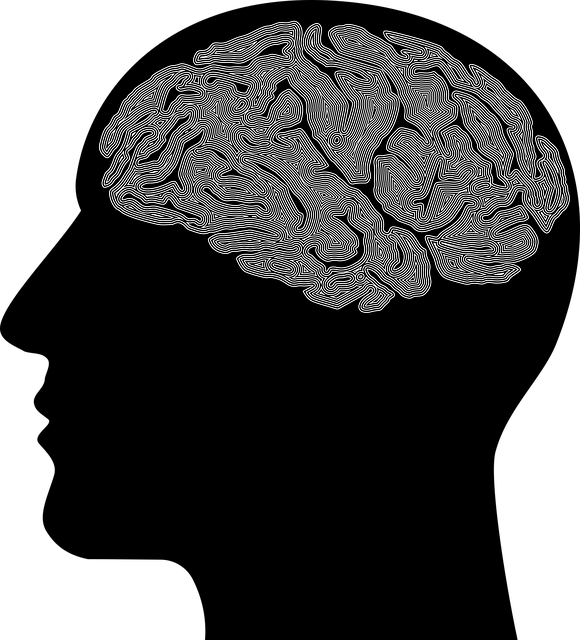Louisville Adjustment Disorder Therapy leverages positive thinking as a powerful tool, combining cognitive reframing, emotional regulation, and community outreach. This holistic approach reduces stress, anxiety, and depression while fostering hope, resilience, and emotional balance. Through tailored strategies, progress tracking, and activities like gratitude journaling, individuals gain the skills to view challenges as growth opportunities, ultimately cultivating long-term positive thinking habits.
Positive thinking exercises have emerged as a powerful tool for enhancing mental well-being, especially in navigating challenges like Louisville Adjustment Disorder Therapy. This article delves into the transformative power of positive thinking and its tangible impact on mental health. We explore practical strategies for implementing these exercises in therapeutic settings, focusing on Louisville Adjustment Disorder Therapy. Additionally, we provide insights into tracking progress and fostering a lasting positive mindset.
- Understanding Positive Thinking and Its Impact on Mental Health
- Implementing Positive Thinking Exercises in Louisville Adjustment Disorder Therapy
- Tracking Progress and Maintaining a Positive Mindset Long-Term
Understanding Positive Thinking and Its Impact on Mental Health

Positive thinking is a powerful tool that can significantly influence one’s mental health and overall well-being. It involves consciously focusing on optimistic thoughts and interpretations, even in challenging situations. By adopting positive thinking, individuals can shift their mindset from negative to constructive, fostering a sense of hope, resilience, and emotional balance. This simple yet profound practice has been shown to reduce stress, anxiety, and symptoms of depression, ultimately enhancing one’s quality of life.
In the context of Louisville Adjustment Disorder Therapy, understanding the impact of positive thinking is invaluable. Adjustment disorders, often characterized by feelings of distress in response to significant changes or events, can be managed effectively through cognitive reframing and emotional regulation techniques. Encouraging clients to cultivate a positive outlook encourages them to view challenges as opportunities for growth, fostering adaptability and resilience. Community Outreach Program Implementation and Emotional Well-being Promotion Techniques can further enhance these benefits by providing support systems and empathy-building strategies, creating a holistic approach to mental health care that empowers individuals to take control of their emotional well-being.
Implementing Positive Thinking Exercises in Louisville Adjustment Disorder Therapy

Implementing Positive Thinking Exercises in Louisville Adjustment Disorder Therapy can significantly enhance the therapeutic process. These exercises are tailored to address the specific challenges faced by individuals diagnosed with adjustment disorders, fostering resilience and emotional well-being. By incorporating techniques such as cognitive reframing, gratitude journaling, and mindfulness practices, mental health professionals in Louisville can create a supportive environment that encourages positive outcomes.
The role of a healthcare provider in this context goes beyond mere treatment; it involves cultivating empathy and cultural competency through training. This ensures that the therapeutic approach is sensitive to individual needs, especially when working with diverse populations. Moreover, effective risk management planning for mental health professionals is paramount to ensure safety and foster a nurturing atmosphere where positive thinking exercises can thrive, ultimately contributing to successful Louisville Adjustment Disorder Therapy.
Tracking Progress and Maintaining a Positive Mindset Long-Term

Tracking progress is a vital aspect of positive thinking exercises, as it allows individuals to witness their transformation over time. This process involves setting specific goals related to mindset shifts and tracking daily thoughts, emotions, and behaviors that contribute to a more optimistic outlook. For instance, one might aim to replace negative self-talk with affirmations or reduce stress levels through mindfulness practices. Regularly reviewing progress helps individuals recognize achievements, identify areas of improvement, and adapt their strategies accordingly. It provides a sense of accomplishment, reinforcing the positive changes being fostered.
Maintaining a consistent positive mindset requires ongoing commitment and practice. Louisville Adjustment Disorder Therapy can offer valuable support in this journey by providing tools tailored to individual needs. Healthcare Provider Cultural Competency Training and Compassion Cultivation Practices are essential components that enable individuals to cultivate empathy, self-compassion, and resilience, fostering a more optimistic perspective. Engaging in regular mental wellness activities, such as keeping a gratitude journal or participating in the Mental Wellness Podcast Series Production, can further enhance long-term positive thinking habits, ensuring individuals stay on track and continue to thrive.
Incorporating positive thinking exercises into Louisville Adjustment Disorder therapy has proven to be a transformative tool. By understanding the power of positive thinking and its profound impact on mental health, individuals can effectively manage their disorders and foster resilience. Through consistent practice, tracking progress, and maintaining a positive mindset, those navigating adjustment disorders in Louisville can achieve lasting improvements in their well-being and overall quality of life.












